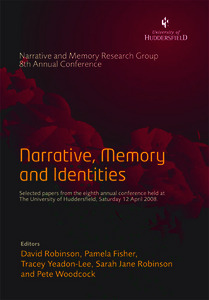In April 2007 I began my dissertation towards an MA in Educational Research at the University of Sheffield. Entitled ‘An evaluation of the experience of doing life history research: A case study’ its purpose was to confirm (or otherwise) my ‘hunch’ that life history would allow fidelity to my professed research philosophy. I will elaborate on this later but the thinking that underlies all my research endeavours is to do feminist research with an ethical aim, a moral purpose and a reflexive impetus. I had been introduced to the notion of ‘narrative research’ in the taught components of the above MA and felt that that this was for me. By ‘narrative’ I mean a particular type of discourse, that is ‘the story’, ‘the type of discourse that draws together diverse events, happenings and actions of human lives’ (Polkinghorne, 1996:5). On this understanding it dawned on me that I had already unconsciously undertaken such research years earlier for an MA in Women’s Studies (Novakovic, 1993) but had failed to grasp this fact because I was working with letters rather than with oral accounts.
So I will first spend some time setting out why I was powerfully drawn to doing narrative research. Then I will mark the points where this brought me into potential conflict with concerns over research ethics, including a more fundamental consideration of the compatibility of narrative research with ethical practice. Finally I will sketch out how a life history methodology provided a way to address, but not definitively resolve, these issues.
Downloads
Downloads per month over past year
Downloads per month over past year for
"cover08.jpg"
Downloads per month over past year for
"Chapter_3_Yvonne_Downs.pdf"

![cover08.jpg [thumbnail of cover08.jpg]](https://eprints.hud.ac.uk/4860/1.hassmallThumbnailVersion/cover08.jpg)


 CORE (COnnecting REpositories)
CORE (COnnecting REpositories) CORE (COnnecting REpositories)
CORE (COnnecting REpositories)